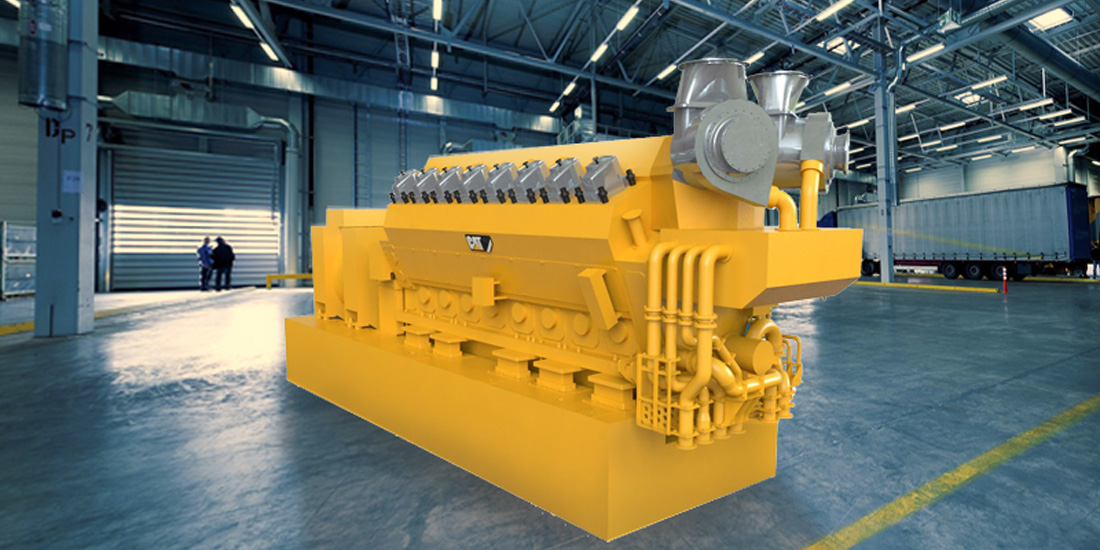Mannheim, October 05, 2017
The main advantages of heat and power cogeneration in a natural gas-fired CHP plant compared to their separate generation include the much better utilization of primary energy and the lower carbon emissions. Due to the needs-oriented distributed energy generation, cogeneration plants reduce the grid load and thus often eliminate or at least minimize the need for expanding the grid. In this way, cogeneration plants boost the on-site and public security of supply with power and heat energy.
Modern CHP Plants Boast an Efficiency of up to 90 Percent
A high overall efficiency of up to 90 percent is a key advantage of modern natural gas-fired CHP power plants. A high electrical efficiency is limited by the size and technology of the CHP plant and is emphasized especially from the economic perspective. Though natural gas will increasingly be replaced by hydrogen from regenerative sources and methane (power to gas), cogeneration is a very cost-efficient and resource-friendly technology for the future, as the gas type used in the CHP plant can be changed.

CHP Plants Help to Roll out the Energy Reform
By balancing the fluctuating power generation from renewable energies such as solar and wind energy, CHP power continues to be a key requirement for the success of the energy reform and the attainment of defined climate targets. To generate power efficiently whenever it cannot be provided by the sun and wind, the flexibility of modern gas-fired CHP plants allows them to be combined in virtual power plants as “control power plants”.
Benefits of Cogeneration Plants: Flexibility, Independence, Profitability
Independence and flexibility are the greatest advantages of distributed energy supply. Gas-fired cogeneration plants can be ramped up very speedily; thanks to their advanced flexibility, they can quickly balance peak loads and grid fluctuations.
What is more, operators of power plants for distributed energy supply are far less exposed to changes on the energy market and costly power outages than companies that exclusively purchase their power, heat, and cooling energy from central energy suppliers.
The use of byproduct gas from industrial and agricultural processes as well as of the exhaust heat of the gas engines can additionally reduce the plant operating costs. Excess energy can be fed into the grid, resulting in revenue that guarantees a high level of profitability of cogeneration plants.
Digitization of CHP Plants for Maximum Efficiency
In the face of rising energy costs – e.g. for natural gas, as can currently be seen – and the constantly increasing energy consumption, distributed energy supply, e.g. with modular power plants or gas-fired CHP plants, provides a major advantage over large stationary power plants and over the purchase of grid power: Though enterprises need to invest money and take care of the power plant operation, they also become more independent, they can generate energy according to their needs, they protect the environment thanks to the lower carbon emissions, and they are able to save a lot of money in the long run. This is especially true if they use custom-tailored power plant solutions that ride the wave of the increasing digitization and automation of Industry 4.0.
Before investing in energy-efficient, eco-friendly solutions in order to promote the future growth of the enterprise, it would be good to evaluate, not only the efficiency and profitability of the investment project, but also the ability to digitize power plants. In the future, further efficiency benefits will arise in this area. For instance, comprehensive real-time data analysis enables more precise control and more systematic reactions to changed conditions. This, in turn, revolutionizes the flexibility and efficiency of gas-fired power plants. The future has already begun!
